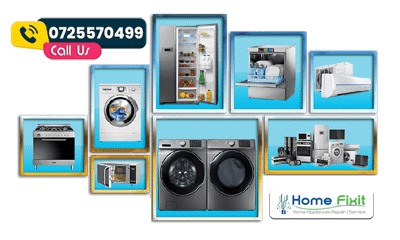0725570499

The Importance of Cooker Disposal and Appliance Disposal: Environmentally Responsible Practices
Cooker disposal and appliance disposal are crucial aspects of responsible waste management and environmental conservation. In a world where electronic appliances have become an integral part of our daily lives, understanding the significance of proper disposal is essential. In this article, we'll delve into why cooker and appliance disposal matters and how to go about it responsibly.
1. Environmental Impact
Cooker Disposal:
Cookers, especially older models, often contain hazardous materials like lead and chromium in their components. When these cookers end up in landfills, these toxic substances can leach into the soil and water, posing a significant environmental threat.
Appliance Disposal:
Electronic appliances, including refrigerators, washing machines, and microwaves, can contain materials like refrigerants, heavy metals, and plastic components. Incorrect disposal can release these harmful substances into the environment, contributing to pollution and ecological damage.
2. Resource Conservation
Cooker Disposal:
Cookers may contain valuable materials like stainless steel, copper, and aluminum. Proper disposal through recycling allows these materials to be reclaimed and reused in the production of new appliances, reducing the demand for virgin resources.
Appliance Disposal:
Similar to cookers, appliances contain a variety of recyclable materials. Recycling appliances helps conserve resources and reduces the energy required to extract and process raw materials.
3. Energy Efficiency
Cooker Disposal:
When you dispose of an old, energy-inefficient cooker and replace it with a more energy-efficient model, you contribute to reduced energy consumption in the long run. Newer cookers are designed to be more energy-efficient, helping lower your utility bills and environmental footprint.
Appliance Disposal:
Replacing outdated appliances with energy-efficient ones can lead to significant energy savings over time. Many modern appliances come with energy-efficient features that not only reduce your electricity bills but also decrease greenhouse gas emissions.
4. Legal Compliance and Safety
Improper cooker and appliance disposal may lead to legal consequences, as many jurisdictions have specific regulations governing the disposal of electronic waste. Non-compliance can result in fines or penalties. Additionally, incorrect disposal can pose safety hazards, especially when dealing with appliances containing refrigerants or hazardous materials.
Responsible Cooker and Appliance Disposal
To ensure responsible cooker and appliance disposal:
-
Recycle: Contact local recycling centers or electronic waste recycling facilities to properly dispose of your cookers and appliances. They have the expertise to dismantle and recycle these items safely.
-
Donate or Sell: If your appliance is still in working condition, consider donating it to a charitable organization or selling it to someone in need. This extends the appliance's life and reduces waste.
-
Follow Local Regulations: Familiarize yourself with local disposal regulations and guidelines. Some areas offer appliance pick-up services or have designated drop-off points for electronic waste.
-
Manufacturer Programs: Check if the manufacturer of your appliance has a take-back program or recycling initiatives in place. They may offer options for responsible disposal or recycling.
In conclusion, cooker disposal and appliance disposal are vital components of sustainable living. By responsibly managing the end-of-life cycle of these products, we can minimize environmental harm, conserve resources, and promote a healthier and more sustainable future for our planet.


 Get the best appliance repair services in Nairobi & Kenya. Whether it's a malfunctioning washing machine, refrigerator, cooker, oven, television, water dispenser, dishwasher, or tumble dryer, our team of skilled technicians is here to provide prompt and reliable repairs. With years of experience in the field, we specialize in fixing a wide range of appliances, ensuring that your daily routines are not disrupted and your appliances operate at their best. Trust us to deliver efficient and professional appliance repair services tailored to your needs in Nairobi.
Get the best appliance repair services in Nairobi & Kenya. Whether it's a malfunctioning washing machine, refrigerator, cooker, oven, television, water dispenser, dishwasher, or tumble dryer, our team of skilled technicians is here to provide prompt and reliable repairs. With years of experience in the field, we specialize in fixing a wide range of appliances, ensuring that your daily routines are not disrupted and your appliances operate at their best. Trust us to deliver efficient and professional appliance repair services tailored to your needs in Nairobi.








